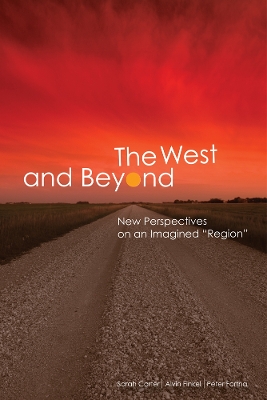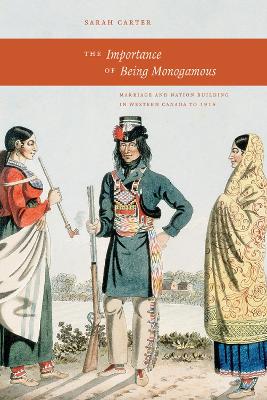The West Unbound: Social and Cultural Studies
2 total works
The West and Beyond explores the state of Western Canadianhistory, showcasing the research interests of a new generation ofscholars while charting new directions for the future and stimulatingfurther interrogation of our past. This dynamic collection encouragesdialogue among generations of historians of the West and amongpractitioners of diverse approaches to the past. It also reflects abroad range of disciplinary and professional boundaries, offering newways to understand the West.
Sarah Carter provides a detailed description of marriage as a diverse social institution in nineteenth-century Western Canada, and the subsequent ascendancy of Christian, lifelong, heterosexual, monogamous marriage as an instrument to implement dominant British-Canadian values. It took work to impose the monogamous model of marriage as the region was home to a varied population of Aboriginal people and newcomers such as the Mormons, each of whom had their own definitions of marriage, including polygamy and flexible attitudes toward divorce. The work concludes with an explanation of the negative social consequences for women, particularly Aboriginal women, that arose as a result of the imposition of monogamous marriage. "Of an immense amount of new and pathbreaking research on Native people over the past 20 years, this work stands out." -Sidney L. Harring, Professor of Law at City University of New York and author of White Man's Law: Native People in Nineteenth-Century Canadian Jurisprudence

